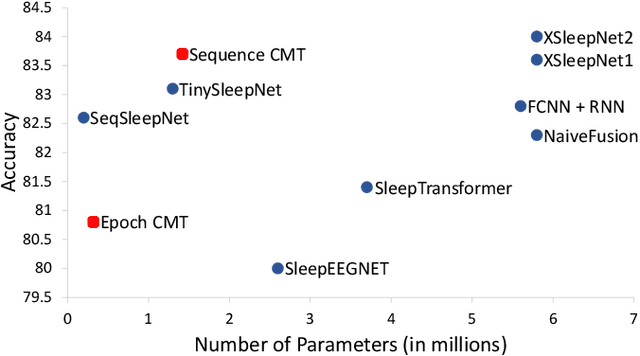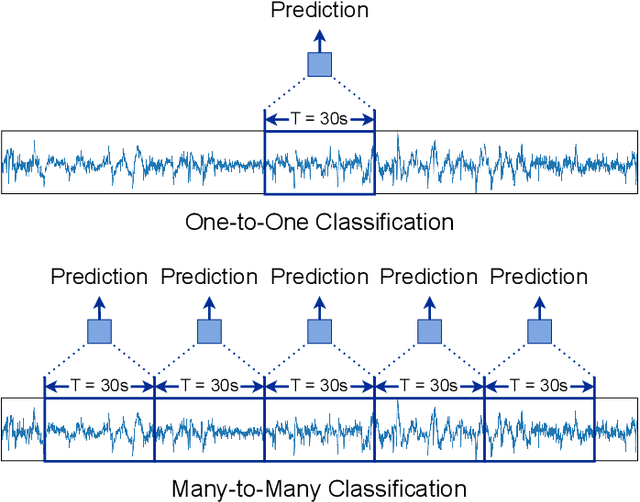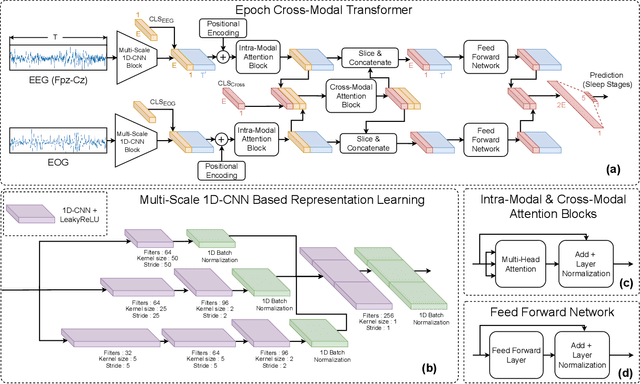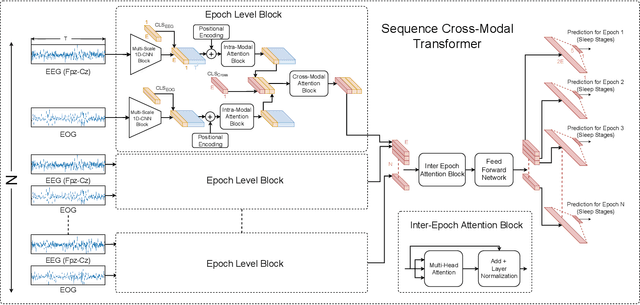Anjula C. De Silva
A Knowledge Distillation Framework For Enhancing Ear-EEG Based Sleep Staging With Scalp-EEG Data
Oct 27, 2022Abstract:Sleep plays a crucial role in the well-being of human lives. Traditional sleep studies using Polysomnography are associated with discomfort and often lower sleep quality caused by the acquisition setup. Previous works have focused on developing less obtrusive methods to conduct high-quality sleep studies, and ear-EEG is among popular alternatives. However, the performance of sleep staging based on ear-EEG is still inferior to scalp-EEG based sleep staging. In order to address the performance gap between scalp-EEG and ear-EEG based sleep staging, we propose a cross-modal knowledge distillation strategy, which is a domain adaptation approach. Our experiments and analysis validate the effectiveness of the proposed approach with existing architectures, where it enhances the accuracy of the ear-EEG based sleep staging by 3.46% and Cohen's kappa coefficient by a margin of 0.038.
Towards Interpretable Sleep Stage Classification Using Cross-Modal Transformers
Aug 15, 2022



Abstract:Accurate sleep stage classification is significant for sleep health assessment. In recent years, several deep learning and machine learning based sleep staging algorithms have been developed and they have achieved performance on par with human annotation. Despite improved performance, a limitation of most deep-learning based algorithms is their Black-box behavior, which which have limited their use in clinical settings. Here, we propose Cross-Modal Transformers, which is a transformer-based method for sleep stage classification. Our models achieve both competitive performance with the state-of-the-art approaches and eliminates the Black-box behavior of deep-learning models by utilizing the interpretability aspect of the attention modules. The proposed cross-modal transformers consist of a novel cross-modal transformer encoder architecture along with a multi-scale 1-dimensional convolutional neural network for automatic representation learning. Our sleep stage classifier based on this design was able to achieve sleep stage classification performance on par with or better than the state-of-the-art approaches, along with interpretability, a fourfold reduction in the number of parameters and a reduced training time compared to the current state-of-the-art. Our code is available at https://github.com/Jathurshan0330/Cross-Modal-Transformer.
 Add to Chrome
Add to Chrome Add to Firefox
Add to Firefox Add to Edge
Add to Edge